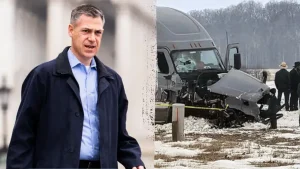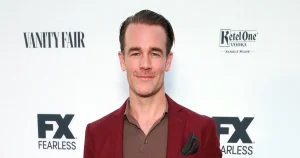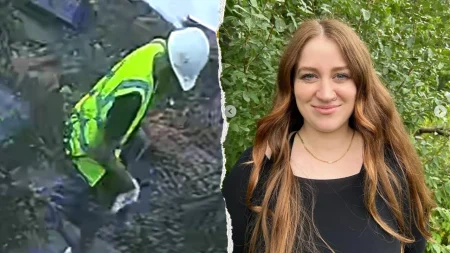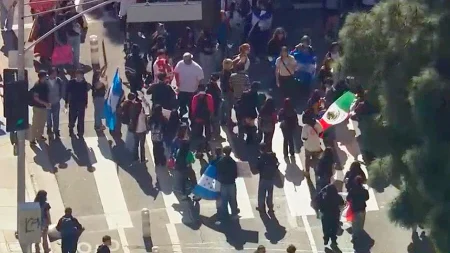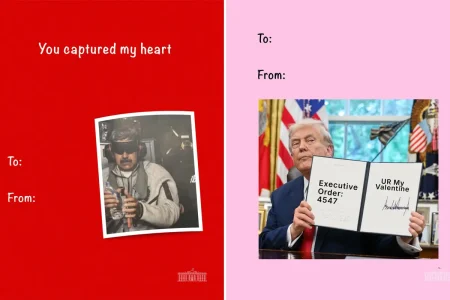Democracy Under Siege: The Complex Battle for Electoral Integrity in Venezuela’s Political Landscape
Machado’s Unwavering Stand: Democracy at Any Cost
In the heart of a nation grappling with profound political turmoil, María Corina Machado stands as a polarizing figure whose uncompromising stance on Venezuela’s contested elections has transformed her into both a beacon of democratic hope and a lightning rod for criticism. For years, Machado has steadfastly maintained that President Nicolás Maduro’s government has systematically undermined electoral processes, effectively stealing what should have been free and fair elections. Her response has been equally resolute: to pursue the restoration of democratic rule through any available means, including the controversial position of supporting potential military intervention when all diplomatic and internal pressure tactics have failed. This hardline approach has energized her substantial base of supporters, who view her as one of the few opposition leaders with the courage to confront what they consider an increasingly authoritarian regime. “When a government abandons constitutional rule and represses its own citizens, all options must remain on the table,” Machado told supporters at a recent rally in Caracas, her words echoing through a sea of Venezuelan flags and placards demanding change. Her supporters, many of whom have experienced economic hardship and political repression, see in her uncompromising position the only viable path toward reclaiming their country’s democratic institutions. However, this same resoluteness has also fueled fierce criticism from both government officials and more moderate opposition figures who argue that her confrontational approach closes doors to potential negotiated solutions.
The Historical Context: Venezuela’s Democratic Deterioration
Venezuela’s current electoral crisis didn’t emerge overnight but represents the culmination of a two-decade process that has seen the steady erosion of democratic safeguards and institutions. The roots of this crisis trace back to the late Hugo Chávez’s presidency, but critics argue that under Maduro’s leadership, the situation has deteriorated dramatically. International election observers, including the Carter Center and the European Union, have documented numerous irregularities in recent electoral processes—from voter intimidation and media censorship to outright manipulation of results. The 2018 presidential election, which many countries refused to recognize as legitimate, marked a particularly significant turning point. Machado’s claims of electoral theft aren’t merely rhetorical positions but are supported by substantial evidence gathered by independent monitoring organizations and condemned by numerous democratic nations worldwide. “What we’re witnessing isn’t simply political disagreement, but the systematic dismantling of democratic governance,” explains Dr. Elena Fernandez, a political scientist specializing in Latin American democracy at the University of Miami. “The question facing Venezuela’s opposition isn’t whether elections have been compromised, but rather how to respond to this reality.” This historical context helps explain why Machado’s hardline position has found such resonance among Venezuelans who feel that traditional diplomatic approaches and negotiation have repeatedly failed to produce meaningful change. The country’s economic collapse—marked by hyperinflation, food shortages, and a humanitarian crisis that has driven approximately six million Venezuelans to flee their homeland—has only intensified the sense that extraordinary measures may be necessary to restore democratic order.
The Strategy Divide: Confrontation versus Negotiation
The Venezuelan opposition remains deeply divided over strategy, with Machado representing perhaps the most unyielding faction. Her willingness to endorse potential military intervention—whether through internal military support for the opposition or external intervention—stands in stark contrast to other opposition leaders who advocate for a more incremental, negotiated approach. Juan Guaidó, once recognized as interim president by dozens of nations, pursued a different path that emphasized international pressure, sanctions, and dialogue. The strategic divide reflects profound disagreements about the nature of the Maduro regime and what measures are justified in response. “We’re dealing with a government that doesn’t respect constitutional boundaries or basic democratic principles,” says Roberto Alonso, a Machado supporter and former political prisoner. “Conventional political approaches assume good faith actors on both sides—that simply isn’t the case here.” Meanwhile, critics like former diplomat Carlos Vecchio argue that Machado’s position “unnecessarily militarizes political discourse and limits diplomatic opportunities.” These contrasting approaches have frequently undermined opposition unity, with Machado’s supporters viewing negotiation advocates as naive or compromised, while her critics see her position as dangerously escalatory. This fundamental disagreement extends beyond tactics to encompass differing visions of Venezuela’s future and how to navigate the treacherous path toward restored democracy. International actors have similarly divided responses, with some governments privately expressing sympathy for more aggressive approaches while publicly endorsing negotiated solutions through mechanisms like the Barbados Agreements or Mexico-hosted dialogues that have produced limited tangible progress.
International Dimensions: Regional Stability and Global Democracy
Machado’s stance on reclaiming Venezuela’s democracy transcends national boundaries, intersecting with broader concerns about regional stability and global democratic backsliding. Her willingness to consider military options has complicated diplomatic efforts led by neighboring countries, particularly Colombia and Brazil, which have typically favored negotiated solutions that prioritize regional stability. The United States has maintained a complex position—rhetorically supporting democratic restoration while being wary of direct military involvement that could trigger wider regional instability. “Venezuela represents one of the most significant tests for how democracies respond to authoritarian consolidation in the 21st century,” notes Ambassador William Brownfield, former U.S. diplomat with extensive Latin American experience. “The international community faces difficult choices between accepting undemocratic outcomes or supporting potentially destabilizing resistance.” This international dimension adds layers of complexity to Machado’s position, as her calls for decisive action must navigate a global context where principles of sovereignty often clash with commitments to democratic governance. Human rights organizations have documented systematic abuses by Venezuelan security forces, strengthening moral arguments for intervention while raising practical questions about implementation and consequences. European nations have generally favored targeted sanctions and diplomatic pressure rather than endorsing more confrontational approaches, creating a fragmented international response that Maduro’s government has skillfully exploited. For Machado and her supporters, this international hesitation represents a fundamental failure to recognize the severity of Venezuela’s democratic collapse and the limited effectiveness of conventional diplomatic tools against a regime they view as fundamentally illegitimate and increasingly entrenched.
The Political Cost: Evaluating Machado’s Approach
Critics of Machado’s uncompromising position argue that her hardline stance carries significant political costs that ultimately undermine the opposition’s effectiveness. Government supporters characterize her as an extremist willing to invite foreign intervention at the expense of Venezuelan sovereignty—a narrative that resonates with historical concerns about U.S. intervention in Latin America. More moderate opposition figures worry that her position limits the potential coalition that could be built against Maduro, alienating Venezuelans who oppose the government but reject military solutions. “There’s a substantial segment of Venezuelans who want change but fear conflict more than continued hardship,” explains political analyst Carmen Beatriz Fernández (no relation to Dr. Elena Fernandez). “By embracing the most confrontational rhetoric, Machado risks surrendering the middle ground.” These critics point to electoral setbacks in regional elections where candidates associated with more confrontational approaches performed poorly compared to moderates who emphasized practical governance improvements rather than regime change. Government negotiators have also reportedly used Machado’s statements about military options as justification for terminating dialogue processes, claiming they demonstrate the opposition’s lack of commitment to peaceful solutions. The Maduro government has leveraged her position to justify increasing repression against opposition activists, characterizing them as potential insurrectionists rather than political opponents. However, Machado’s supporters counter that these political costs are outweighed by the moral clarity and mobilizing power of her uncompromising stance, arguing that compromise has repeatedly failed to produce meaningful democratic progress.
The Path Forward: Democratic Restoration in a Polarized Nation
As Venezuela approaches another electoral cycle, the fundamental tensions embodied by Machado’s position remain unresolved. The opposition faces the daunting challenge of contesting elections within a system they consider fundamentally corrupted while maintaining enough democratic legitimacy to justify their claims to power. Machado herself has evolved somewhat in her public statements, increasingly emphasizing mass citizen mobilization and strategic pressure rather than external intervention, though she continues to insist that no options should be removed from consideration. “Our primary strength lies in united citizen action—millions of Venezuelans standing together cannot be ignored indefinitely,” she declared in a recent interview, signaling a potential shift toward emphasizing internal pressure mechanisms. The sustainability of her approach will ultimately be measured not just by its moral clarity but by its practical effectiveness in advancing democratic restoration. Recent polling suggests that while a majority of Venezuelans believe elections have been manipulated, they remain divided on the appropriate response, with many fearing that confrontational approaches could trigger violence in an already fragile society. The international community likewise continues to search for effective leverage points, recognizing that neither diplomatic isolation nor economic pressure has yet produced the desired democratic transition. Despite these challenges, Machado’s unwavering commitment has ensured that Venezuela’s democratic crisis remains visible internationally, preventing the normalization of authoritarianism that might otherwise occur. “History judges harshly those who accommodate themselves to tyranny,” Machado frequently reminds her followers. “Our commitment to democratic principles cannot be contingent on convenience.” As Venezuela navigates this precarious chapter, the tension between principled confrontation and pragmatic negotiation embodied in the debate over Machado’s approach remains central to understanding both the country’s current crisis and its potential paths toward democratic renewal.

